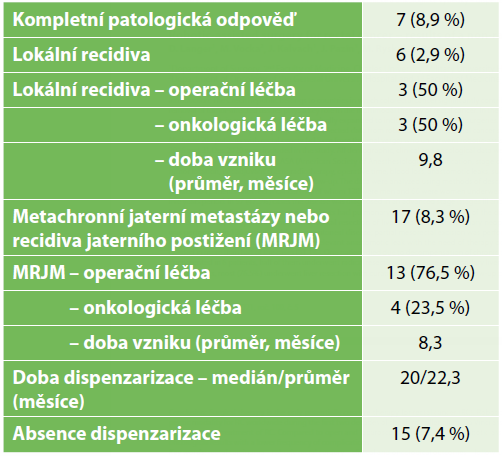Abstract
Introduction: The Czech Republic belongs to countries in which colorectal cancer significantly contributes to the overall oncological burden. Radical removal of tumor-affected tissues plays a key role in the multimodal therapy of rectal cancer. In the first decade of the third millennium the mini-invasive approach in rectal cancer surgery gradually expanded to include robotic-assisted surgeries. The aim of this paper is to present the results of a non-randomized study with prospectively collected data from robotically assisted rectal cancer surgeries.
Methods: 204 patients with rectal cancer (<15 cm from the anal verge) who underwent robotic-assisted surgery at our department between 01 Jan 2016 and 31 Dec 2020 were included in the study. All demographic, clinical and oncological data were prospectively obtained and analyzed − gender, age, body mass index (BMI), ASA (American Society of Anesthesiologist) classification, stage of cancer according to TNM classification (UICC), tumor location, neoadjuvant chemoradiotherapy, operative time, blood loss, anastomotic leaks, surgical complications, 30-day mortality, local and metastatic recurrence and the length of follow-up. The data were analyzed using methods of descriptive statistics...

